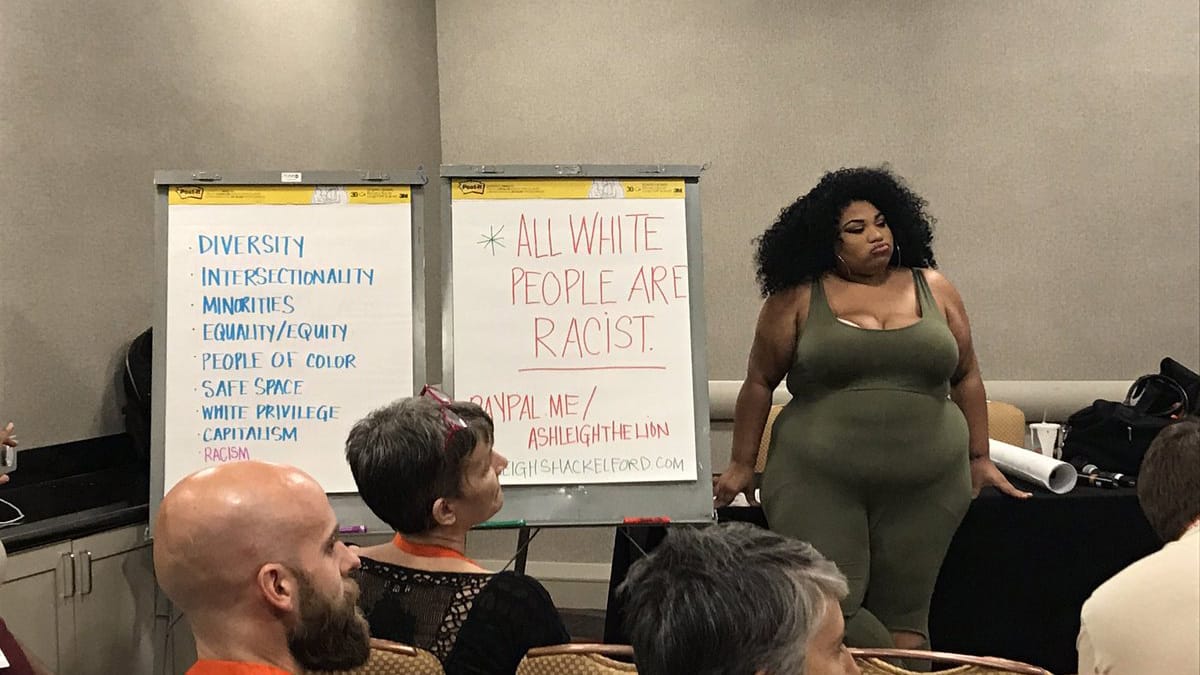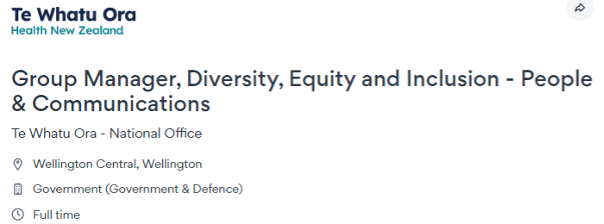Table of Contents
In September 2008 during the year of the last financial collapse, Peter Cappelli authored an article titled The Trouble with HR in the Harvard Business Review. In it, he argued that HR departments had lost their relevance and credibility in many organisations, asserting the need for them to reinvent themselves. Cappelli claimed that HR departments had failed to fulfil their essential functions of talent management, performance evaluation, and employee relations.
- Cappelli P. The trouble with HR. Harv Bus Rev 2008; 86: 40–7.
Regrettably, since then HR departments have undergone a transformation, but not for the better. In response to significant social movements like Occupy Wall Street, “Black Lives Matter” and the subsequent #MeToo movement businesses adopted a stance of increased ‘virtue’. This shift allowed HR to expand its role, embracing a ‘more virtuous and activist’ approach. Consequently, there has been a staggering rise in ‘Diversity, Equity, and Inclusion’ programs as companies aim to demonstrate their compassionate side, distancing themselves from the perception of being solely profit-driven machines. This trend has been relentless, with the term “stakeholder capitalism” gaining prominence, bolstered by dubious institutions such as the WEF.
- World Economic Forum. Measuring Stakeholder Capitalism: Towards Common Metrics and Consistent Reporting of Sustainable Value Creation. Geneva: World Economic Forum, 2020.
The 2020 Covid scare provided more opportunities for the promotion of such concepts and for HR to become even more involved in business strategy and (negatively) affecting the lives of the employees, e.g. enforcing mandate compliance.
In 2022, Juliet Samuel, a columnist for both The Times and The Telegraph (in the UK), wrote two articles on how HR departments use these impetuses to justify actions far from their remits and on how they now have an adverse impact on the workplace. In both articles, she argues that HR departments have become too powerful and intrusive in workplaces, imposing their social and political agendas on employees and even employers. She cites examples of HR departments expanding their remit to the point of harassing and dismissing workers for expressing their views, forcing diversity and inclusion training on staff, and influencing the strategic direction of organisations. She demonstrates that HR departments are unaccountable and in many cases are destructive forces in the economy. She questions the productivity and value of the 400,000 workers employed in HR in the UK and suggests that HR departments are a symptom of an economy stifled by bureaucracy and regulation. She concluded that HR departments need to be reformed and restrained and that workers and employers need to resist their overreach and interference.

- Samuel J. How the HR monster destroyed the workplace. The Times 2022; June 17: 23–4.
- Samuel J. How the HR monster destroyed the workplace. The Telegraph 2022; June 17: 15–6.
New Zealand suffers similar issues to the UK, but in the case of Te Whatu Ora, the consequences are deliberately designed by HR ideologues to be both ideological in character, far-reaching and self-aggrandising.
Te Whatu Ora – Health New Zealand –is a new public health agency, established by the Labour Government on 1 July 2022 to replace the country’s twenty district health boards (DHBs). Te Whatu Ora aims to run the health system across New Zealand, with functions delivered at local, regional, and national levels. It is also supposed to work in partnership with Te Aka Whai Ora – the Maori Health Authority, created on the same date.
A recent (25 November 2023) look at the proposed, and presumably planned, hires of Te Whatu Ora reveals a department already headed in the direction of bloat and focused on “equity”, rather than focusing on being an efficient health service provider.
Here are the search parameters. Note that one boundary is that the proposed wage for the hires is NZD $200,000 p.a. or more, for each employee.

One of the first results to come up is the following role: “Group Manager, Diversity, Equity and Inclusion – People and Communications”. DEI officers are nothing less than the “commissars’ of an ideology placed into the workplace to promote ‘cultural Marxism’. A role that is arguably both worse than unproductive (as DEI programs are inevitably divisive) and certainly not worth $200,000 p.a.

Te Whatu Ora’s HR approach and objectives have been politically motivated right from its inception. The opportunity exists to fill every single senior HR role with ideologically identical commissars.
- If you decide to spend an additional $5.4 million on a health department driven by ideology, keep in mind that the next 27 roles will each cost $200,000 or more per year.
- The money is not going towards more doctors or nurses; it is going towards HR political programs.
Furthermore, it’s important to note that the qualifications needed for these positions appear vague or, at most, limited to basic management skills, and the word “merit’ goes unmentioned. However, for every role, there’s a distinct implication that one must align with a specific ‘persuasion’ in order to qualify.
Advertised roles:
1. Group Manager, Organisational Culture Programme
2. Group Manager, Recruitment – People & Communications
3. Group Manager, Media & Social – Communications & Engagement
4. Group Manager, Emergency Management
5. Group Manager, Resident Doctors Support Services – People & Communications
6. Group Manager Improvement & Innovation Capability & International Collaborations
7. Group Manager, Payroll & HR Support – People & Communications
8. Group Manager, Leadership & Talent Development – People & Communications
9. Group Manager, Kaimahi Experience – People & Communications
10. Group Manager, Attraction & Strategy & Specialist Recruitment
11. Group Manager, Creative Services & Campaigns – Communications & Engagement
12. Group Manager, Infrastructure Construction Sector Relationships – IIG
13. Group Manager, Insights & Partnerships – Communications & Engagement
14. Group Manager, Regional Communications Delivery – Communications & Engagement
15. Group Manager, Maori Workforce Delivery
16. Group Manager, People, Intelligence & Insights – People & Communications
17. Group Manager, HR Change – Change & Workforce Transition
18. Group Manager, Internal Communications & Culture – Communications & Engagement
19. Group Manager, Strategic & Stakeholder Communications
20. Director HR Operations – (DST1 Waitemata/Northland)
21. Director HR Operations – Capital Coast, Hutt Valley, Wairarapa
22. Director HR Operations – Nelson, Marlborough, Canterbury, West Coast
23. Director HR Operations – Southern, South Canterbury – People & Communications
24. Director HR Operations – Tairawhiti, Hawkes Bay – People & Communications
25. Director HR Operations – Waikato – People & Communications
26. Director HR Operations – Whanganui, Mid-Central – People & Communications
27. Director HR Operations – BOP, Lakes – People & Communications
Despite holding a Doctorate in Business Administration, I find it challenging to comprehend the necessity of some of these positions as full-time roles, as well as their potential productivity. Several roles seem to exhibit racial bias, and one, specifically titled “Group Manager, Internal Communications & Culture – Communications & Engagement,” appears tailored to hire someone who will enforce a particular ideology and agenda (DEI).
- My perception is of an HR Department that is significantly influenced by ideology, seemingly out of control, and misusing taxpayers’ money.
This stance has been evident since the inception of the presumed ‘improved’ health system. It is possible that this new health system was and is simply a tool to bring about a new system now dominated by ideological adherents in much the same way as the Labour Government wanted to establish “education hubs”.
What are the solutions?
- All these hires should be put on hold, the roles reviewed, and many eliminated. Most deserve to be redefined.
- The hiring process should be removed from the current HR administration that constructed these roles and handed over to an impartial party.
- Those who wrote these position descriptions and conceived the future form and function of Te Whatu Ora should be excluded from future planning due to their obvious bias and for injecting a political and ideological agenda into the New Zealand Health system.









